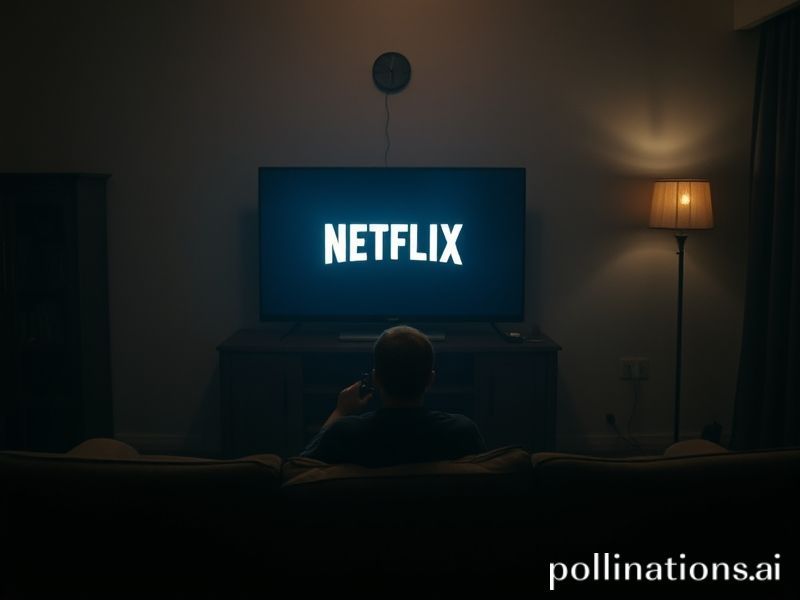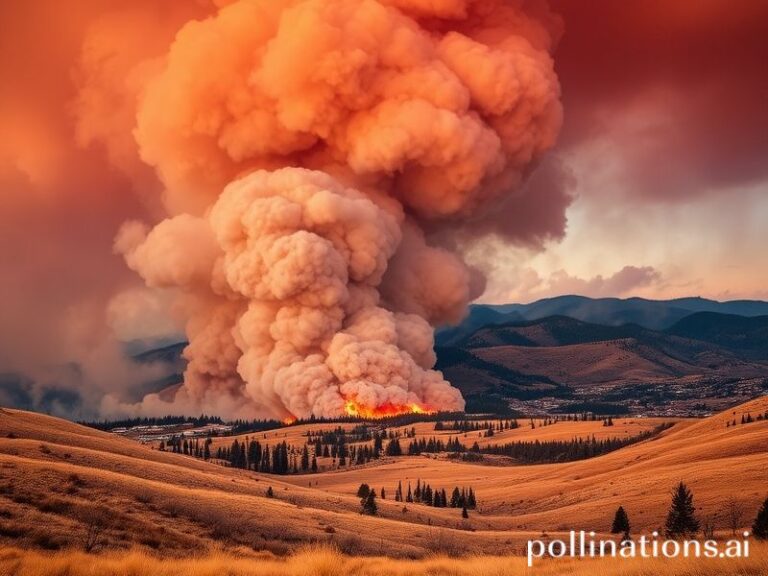404 Apocalypse: How Netflix Unpublished the End of Wayward Pines and Sparked a Global Memory Black Market
The Curious Case of the Vanishing Finale: Netflix’s Wayward Pines and the Global Art of Self-Cancellation
By Our Cynical Correspondent, Somewhere Between Reykjavík and Recife
When Netflix quietly yanked the third season of *Wayward Pines* from the platform last month—no press release, no commemorative montage, just a brief 404 where Matt Dillon’s worried face used to be—viewers from Oslo to Osaka discovered the same bleak truth: the ending now exists only in the collective fever dream of message boards and VPN-enabled pirates. What was once a tidy dystopia about a small Idaho town and its genetically engineered mayhem has become an international ghost story, proof that in the streaming age even fictional towns can be disappeared faster than a Moscow opposition candidate.
The first irony, of course, is that *Wayward Pines* already ended twice. Fox’s season-two finale delivered a cheerful genocide: humanity 2.0 (the Abbies) inherited the Earth while M. Night Shyamalan’s executive producer credit faded to black. Netflix then bought global rights, slapped on 37 subtitle tracks, and marketed the show as “perfect for one rainy weekend.” Millions dutifully binged—Indonesian graphic designers in coworking caves, Peruvian grandmothers learning English by flashlight—only to learn that their shared cultural reference could be memory-holed on a licensing whim. Somewhere, a Swiss data-center engineer probably pressed a single keystroke and erased a continent’s water-cooler conversation.
This erasure matters because *Wayward Pines* was never merely American paranoia; it was international allegory wearing a Stetson. The town’s electrified fence was the Mediterranean, the Abbies every climate refugee our politics refuses to name. When the First Generation of kids staged their creepy coup, European viewers nodded knowingly—Brexit, Bolsonaro, pick your local youth-led catastrophe. The show’s final message (“Evolution happens, deal with it”) played like a TED Talk given by an undertaker. Now that the message itself has evaporated, the metaphor metastasizes: if a streaming giant can unpublish the future, what hope is there for the present?
From Lagos to Lyon, Reddit threads have sprouted like digital mushrooms, each claiming to possess the “true” finale. A German user insists a secret unaired episode ends with David Pilcher waking up in 2023 Berlin, rent unaffordable, currywurst now lab-grown. A Filipino fan fiction reimagines the Abbies applying for EU work visas. Meanwhile, Netflix India still advertises *Pines* on bus shelters, blissfully unaware the inventory is gone. The whole spectacle feels like a Soviet joke: “The future is certain; it’s the past that keeps changing.”
The broader significance? We have privatized cultural memory. A show’s canon can be red-lined by a committee in Los Angeles who’ve never had to explain to their bewildered mother in Bogotá why the thing they were watching last Tuesday no longer exists. The UN may declare the internet a human right, but nobody drafts treaties guaranteeing the persistence of season three. Expect a black market of hard-drive monks, smuggling USB sticks across borders like samizdat samurai. One day, customs dogs will be trained to sniff out contraband *Westworld* finales.
And yet humans adapt. In a Belgrade café this week, I overheard two teenagers reenacting the missing episodes with salt shakers and espresso cups. Their version concluded with the Abbies founding a workers’ cooperative that unionized the surviving humans. It was, frankly, more coherent than anything Shyamalan ever green-lit. Out of digital death, grassroots resurrection—proof that even when Silicon Valley deletes the apocalypse, the Balkans will improvise a better one over coffee.
So here’s the takeaway for the cosmopolitan cynic: *Wayward Pines* didn’t end; it was merely outsourced to the global imagination. The fence still hums, but now it’s built of 404 errors. The monsters still roam, but they speak every language on Google Translate. And somewhere in the cloud, a server light blinks off—another quiet little murder in the ongoing genocide of shared stories. Sleep tight, humanity 1.0. Your finale is buffering indefinitely.







